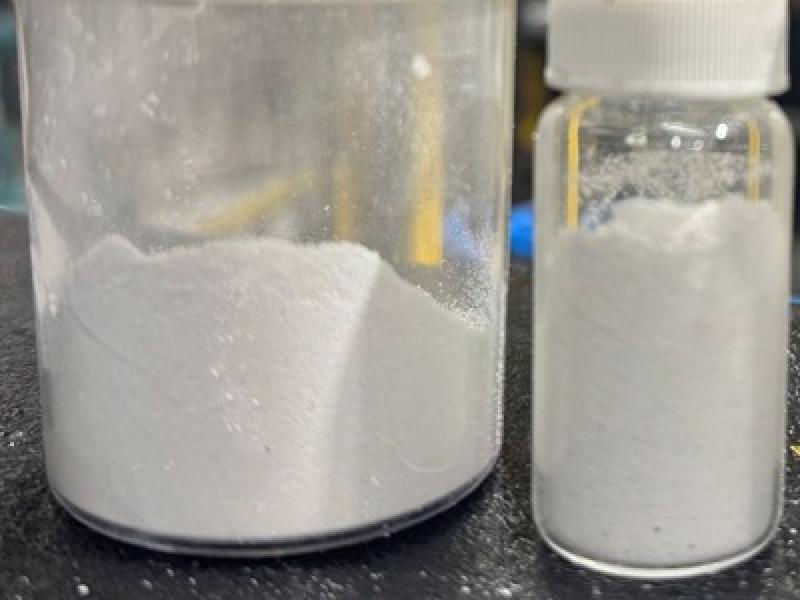
Magna International (MG-T) is introducing an industry-first seating solution that will further accelerate the decarbonization of the automotive sector.
Announced in a statement on Wednesday, the Ontario-based automotive parts giant unveiled its EcoSphere product family that will create a fully recyclable seating system via the company’s 100 per cent Melt Foam and Trim technology.
Magna claims it will result in a substantial future reduction in the environmental impact of the auto industry by eliminating the need to dispose of non-recyclable seating foam pads and trim covers in landfills.
"As a top priority for our stakeholders, we recognize the need for innovative solutions that minimize environmental impact," Carrie Young, Magna's chief engineer of seating innovation, said on Tuesday at a Magna Seating Innovation conference held just outside of Detroit, Mich.
"This unique product family enables our seating materials to be repurposed and reused in the creation of new polyester products, contributing to a circular economy approach."
Reinforcement of Magna's commitment to sustainability

The launch of the EcoSphere automotive seating solution is another step forward taken by Magna as part of its overall commitment to sustainability. The new tech will allow the company to produce seating systems for cars and trucks that will "utilize PET mono-materials in both foam and trim."
Magna’s EcoSphere product line is comprised of sustainable trim materials, trim padding, structures and foam that will not only contribute to the lowering of the company's carbon footprint but also help support the circular economy.
The seating solution tech also highlights the company's determination to reduce its carbon footprint in every phase of its manufacturing operations that are a critical part of the supply chain in the auto manufacturing industry.
Young has long been a driving force behind Magna's sustainable seating program. Speaking at last year's Detroit Auto Show, she foreshadowed the announcement of the EcoSphere system.
"Magna is really taking a look at how our seats affect the environment from start to finish (and how to create) a renewable circular economy" with respect to its seating systems, she said at the time.
To fulfill its mission of sourcing 100 per cent recyclable materials for the EcoSphere seating solution, Magna is partnering with TWE Group, a multinational company specializing in manufacturing technical textiles and nonwovens, which include products made from recycled and biodegradable fibres.
"Through strategic partnerships with leading sustainable organizations, like TWE, the new EcoSphere product family exemplifies our vision of providing eco-friendly comfort and style to our customers.” Joe Meyer, Magna's senior director of business development, seating, said.
Magna makes further inroads into automotive seat market
According to a recent report by MarketsandMarkets, the passenger car seat market is projected to reach total sales of $57.8 billion in 2023. Magna’s sustainable seating approach may result in the global auto parts manufacturing giant making further inroads into this multi-billion dollar segment of the market.
In Q2, Magna saw its seating sales revenue rise by 28 per cent to $2.2 billion, which alone represents a significant 15 per cent share of the company's overall Q2 sales revenue of $15 billion for its four auto parts divisions.
Sales of Magna's sustainable seating system are also expected to increase substantially over the coming decade due to the rapid rollout of decarbonization efforts in every segment of the auto manufacturing industry.
In June, the company announced it would be building two new facilities in Stanton, Tenn. to produce battery boxes, frames and seats as part of the supply network for Ford’s F-150 electric truck plant that is capable of producing 500,000 electric trucks a year.
Meanwhile, Magna is also providing seats for the next wave in electric cars – the Fisker Ocean SUV – believed to be the most sustainable SUV ever put into production.
The company has already set 2030 as the target date for 100 per cent renewable electricity use in its global operations and expects to achieve that goal in Europe as early as 2025.
Magna has already seen 30 of its international divisions reach the coveted goal of carbon neutrality. This year, the company expects to reach its previously stated goal of a 10 per cent reduction in energy intensity in its world-wide manufacturing facilities.
By incorporating recycled and bio-based materials into its sustainable seating system, the company is introducing yet another component that will bring it closer to its net-zero goal.










